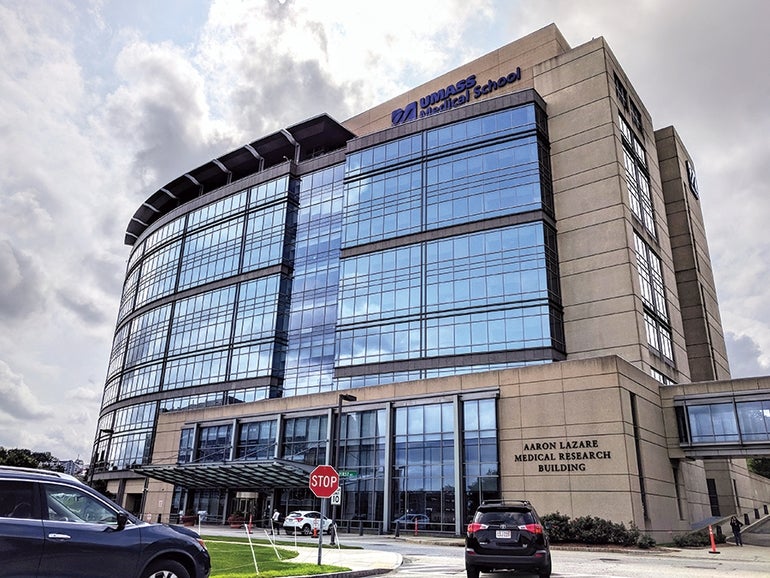Researchers at UMass Medical School in Worcester think a new kind of gene therapy may safely treat patients with ALS.
A study from professors Christian Mueller and Robert Brown Jr. shows a gene therapy delivered to motor neurons via a viral vector was able to silence proteins in animals that are believed to cause ALS, or Lou Gehrig’s Disease.
Now, researchers hope the science can be brought to the next step for clinical trials in patients.
In a press release announcing the study, Mueller said the team was able to silence the SOD1 protein by more than 90 percent in some motor neutrons.
“This level of silencing, coupled with the lack of adverse effects, suggests that this approach to treating ALS should be safe in humans and also that therapy can potentially be done with a one-time treatment,” she said.
Brown, chair of neurology at the medical school, discovered in 1993 the first gene linked to familial ALS, a protein anti-oxidant dismutase, or SOD1.
Mutations to the SOD1 gene account for 20 percent of all inherited cases on ALS, while misfolding of the SOD1 protein has also been identified in other sporadic cases of the disease, making it a likely target for therapy.
A potential therapy those those cases includes the suppression of the expression of mutant genes or reduce the amount of misfolded protein.
By doing so, the neurotoxicity causing motor neuron death may be avoided or possibly reversed. That can be done using microRNAs – part of the natural RNA silencing machinery found in plants and animals.
These RNAs pair to complementary sequences found on messenger RNA and destabilize them so the cell can’t turn molecules into proteins.
Using this technique, the researchers hope to turn off toxic genes and and proteins that cause ALS, commonly referred to Lou Gehrig’s disease. A drug using RNA sequences targeting SOD1 mutations would be delivered through spinal fluid.
“What this shows is that we have a great way of delivering an RNAi-based drug to the right cells, in sufficient quantities that we should be able to silence the disease-causing gene with a one-time treatment,” Mueller said. “These experiments are at a point where they need to be taken to the next step and translated into clinical trials for patients.”
CORRECTION: This story has been updated. An earlier version said the research was conducted using funds from the Ice Bucket Challenge.

